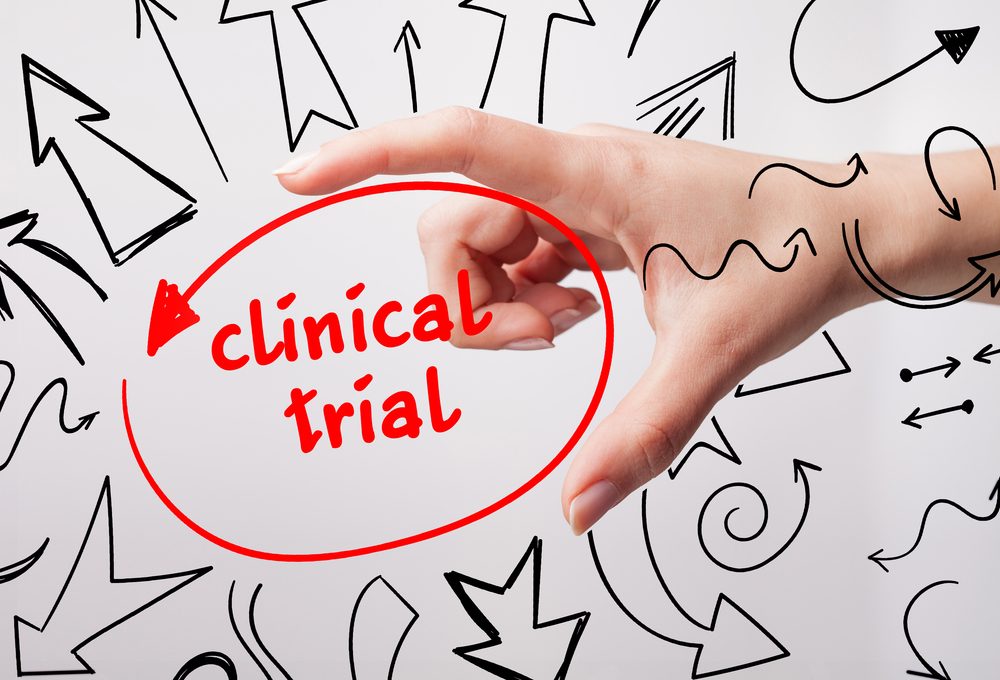Phase 3 Trials Will Test Self-injectable Crovalimab
Written by |

Den Rise/Shutterstock
Two Phase 3 clinical trials will evaluate the safety and effectiveness of Roche’s investigational, self-injectable therapy crovalimab (RG6107) in children, adolescents, and adults with atypical hemolytic uremic syndrome (aHUS).
The first trial, called COMMUTE-a (NCT04861259), already is recruiting aHUS patients, ages 12 and older, at sites in the U.S. and Japan, with sites in 15 other countries expected to soon open. More information about contacts and locations are available here.
The second study, called COMMUTE-p (NCT04958265) and meant to include children and adolescents up to age 17, is not yet recruiting at either of its sites across 11 countries. More information can be found here. This study is anticipated to start in October.
Originally developed by Chugai Pharmaceutical, now a subsidiary of Roche, crovalimab is a self-injectable improved antibody that specifically targets the C5 protein of the complement system, a part of the immune system chronically and uncontrollably activated in aHUS patients.
By blocking C5’s activity, crovalimab is thought to prevent small blood vessel destruction, formation of blood clots, and consequent organ damage — all hallmark features of aHUS.
While it has a similar mechanism of action to Alexion Pharmaceuticals’ Soliris (eculizumab) and Ultomiris (ravulizumab), crovalimab binds to a different part of the C5 protein, allowing it to be used to treat patients harboring a C5
genetic variant seen mainly in Japan that provides resistance to the approved therapies.
In addition, the experimental therapy was designed with Chugai’s recycling antibody technology to bind to C5 more efficiently, to more easily enter cells while bound to C5, and to be recycled by cells in a more efficient way.
These features suggest that crovalimab may have similar or greater efficacy than approved C5 inhibitors, given directly into the bloodstream, with a smaller dose administered through under-the-skin injections.
Previous data from an ongoing Phase 1/2 trial (NCT03157635) showed that crovalimab safely and effectively blocked C5 activity in healthy volunteers and in people with paroxysmal nocturnal hemoglobinuria (PNH), a serious blood disorder caused by complement overactivation.
Mild-to-moderate skin reactions that resolved on their own were observed in some of the patients switching from other C5 inhibitors to crovalimab.
Notably, complete and sustained complement system suppression was observed when the therapy was administered either weekly, every other week, or once every four weeks, prompting further clinical evaluation of the latter dose regimen.
The upcoming Phase 3 trials will evaluate crovalimab’s safety, pharmacokinetics (movement into, through, and out of the body), pharmacodynamics (effects on the body), and effectiveness in three groups of aHUS patients.
The first will include patients who have not been treated previously with a complement inhibitor, the second those who choose to switch from another C5 inhibitor, and the third will be comprised of patients who previously discontinued treatment with another C5 inhibitor.
The last group also will include patients carrying the C5 genetic variant that limits responses to Soliris/Ultomiris.
Participants will receive an initial weight-based dose of crovalimab directly into the bloodstream, followed by under-the-skin injections once a week for five weeks, and once every four weeks thereafter for up to eight years.
The trials’ main goal will be to assess the proportion of patients achieving a complete thrombotic microangiopathy (TMA) response at 25 weeks (about six months).
TMA comprises a group of conditions characterized by red blood cell destruction, low platelet counts, and blood clots that clog the small blood vessels of organs, particularly the kidneys. Over time, this may lead to kidney failure. aHUS is considered a TMA.
A complete TMA response is typically defined as a normalization of platelet counts and blood levels of lactate dehydrogenase — a marker of red blood cell destruction — as well as a drop in the levels of creatinine levels, which is a marker of kidney dysfunction.
Secondary goals include the assessment of several TMA-related features, kidney function, fatigue, development of antibodies against the therapy, as well as pharmacokinetics, pharmacodynamics, and safety measures.
According to a website post from the aHUS Aliance, 25-week study data, if positive, might be sufficient to support the submission of a regulatory application seeking the therapy’s approval for aHUS.
The COMMUTE-a study intends to enroll up to 90 adults and adolescents, ages 12 and older, with aHUS; its main goal is expected to be assessed by March 2024. The COMMUTE-p trial expects to recruit up to 35 aHUS pediatric patients up to 17 years of age, with a primary assessment expected by December 2025.
Alexion also is testing a new weekly under-the-skin formulation of Ultomiris in adults with PNH in a Phase 3 trial. Interim data from the study showed that weekly, self-administered, under-the-skin injections of Ultomiris may be as safe and effective at preventing complement overactivation as standard into-the-vein infusions.






